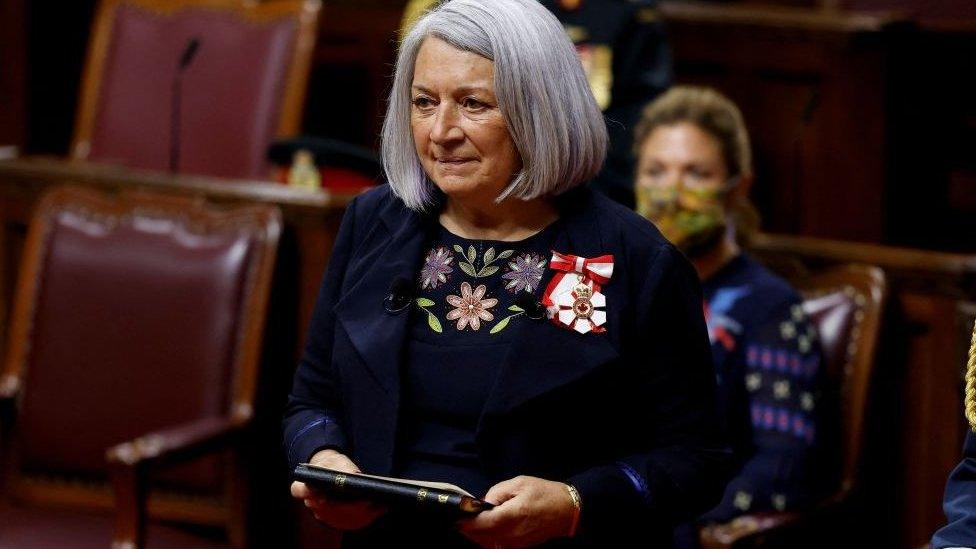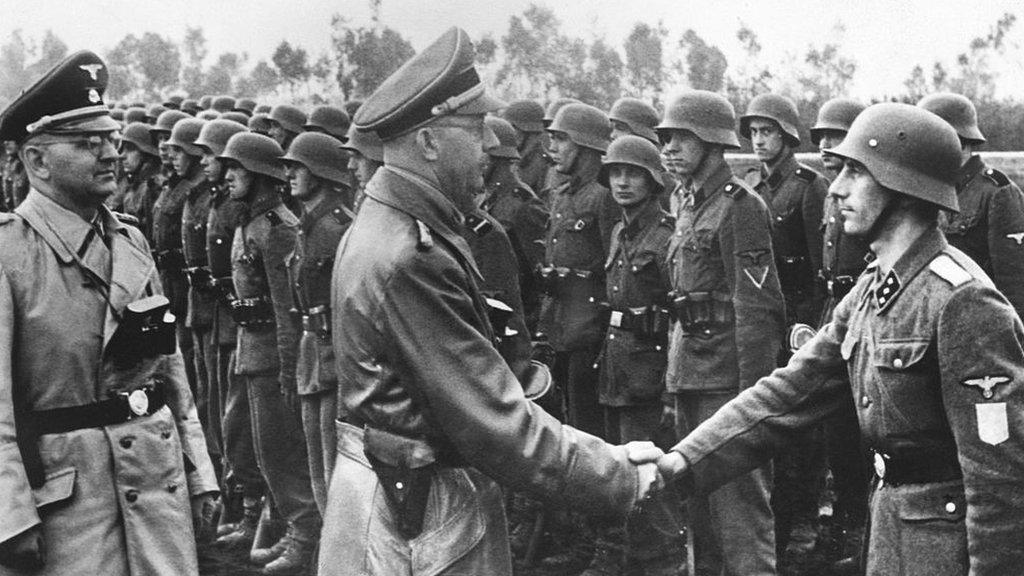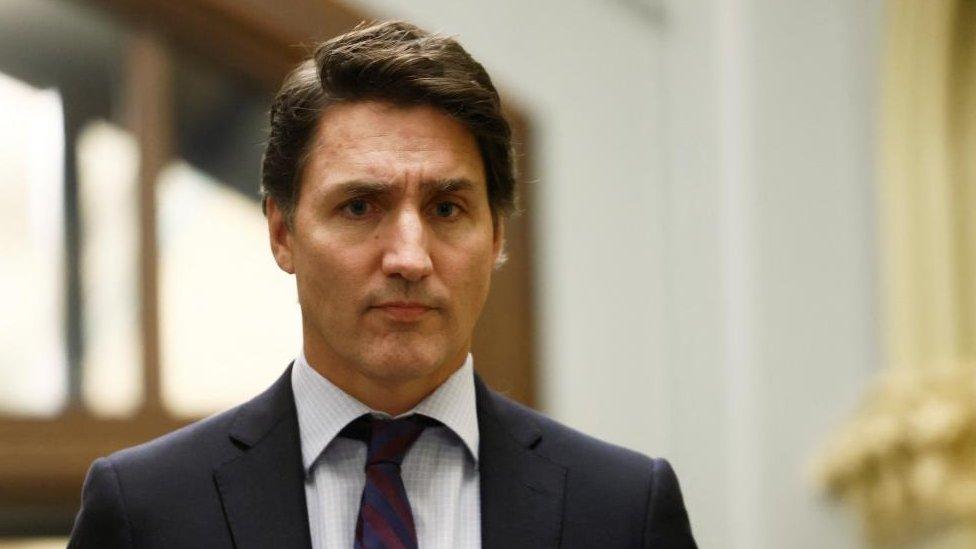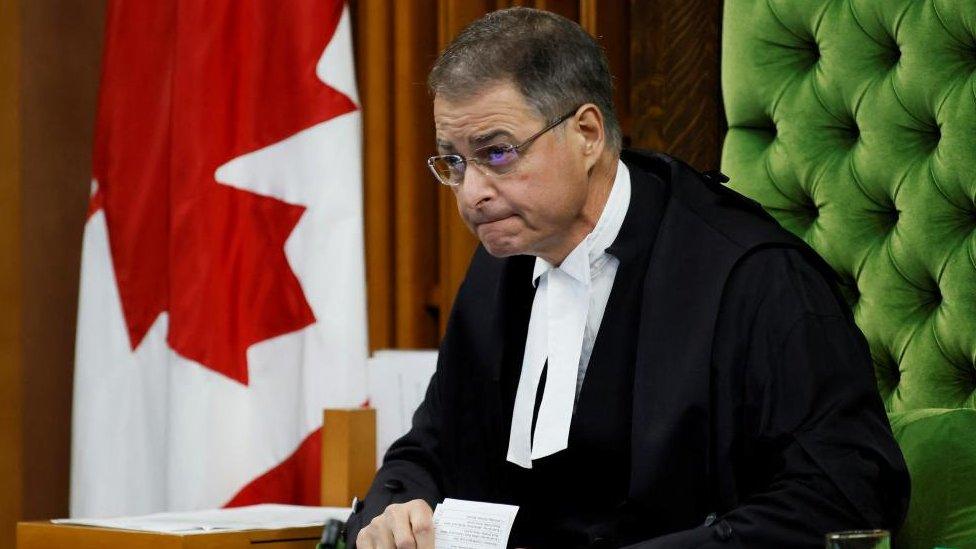Canada Nazi row: Governor General apologises for honour given to man who fought in Waffen SS unit
- Published

The office of Governor General Mary Simon says it "deeply regrets" appointing Peter Savaryn to the Order of Canada in 1987. Mr Savaryn died in 2017, aged 90
Canada's Governor General Mary Simon has apologised for a top Canadian honour awarded to a former Nazi soldier nearly four decades ago.
Peter Savaryn, a former chancellor of the University of Alberta, was given the Order of Canada in 1987.
It has since emerged that Mr Savaryn served in Nazi Waffen SS units.
The apology comes a fortnight after a row in Canada's parliament over an invite to an elderly Ukrainian man who had fought with Nazi Germany.
Yaroslav Hunka, 98, was applauded in the House of Commons by lawmakers not aware of his history, during a visit by Ukrainian president Volodymyr Zelensky.
Canada's Prime Minister Justin Trudeau called the incident "deeply embarrassing", and the Speaker of the House, Anthony Rota, took responsibility for inviting Mr Hunka and resigned.
Since then, Jewish groups in Canada have called on the government to acknowledge and probe other Nazi veterans in the country.
During World War II, millions of Ukrainians served in the Soviet Red Army, but thousands of others fought on the German side under the 14th Waffen Grenadier Division of the SS - also known as the Galicia Division - that was formed in 1943.
Some of those Ukrainian soldiers then emigrated to Canada after the war.
Among them was Mr Savaryn, who was awarded the Order of Canada - a top civilian honour that recognises outstanding achievement and contributions to the country.
After emigrating, Mr Savaryn enrolled in the University of Alberta and became a lawyer. He served as chancellor of the university from 1982 to 1986.
He was also president of the Ukrainian World Congress in Canada from 1983 to 1988, and was once the vice-president of the Progressive Conservative Party of Canada.
Mr Savaryn was a founding member of the Alberta Cultural Heritage Council, and was awarded the Order of Canada for promoting multiculturalism. , external
He died in 2017 at the age of 90.
Mr Savaryn's background as a soldier with the Waffen SS first emerged in a 2012 journal article., external It then resurfaced this week in a report by Jewish publication Forward., external
Governor General Simon - the representative of King Charles III in Canada - told Forward she felt "deep regret" over the situation.
"We express our sincere apology to Canadians for any distress or pain his appointment may have caused," her office said.
"Historical appointments to the Order of Canada reflect a specific moment in time, and would have been based on limited information sources available at that time."
The Order of Canada is awarded on behalf of the reigning monarch of Canada by the governor general.As of 2023, more than 7,600 people have been appointed to the order. When they die, their membership automatically ends.
As fallout from the parliament row continues to resonate, Jewish groups have urged the Canadian government to release a 1980s report which probed the alleged presence of war criminals in the country.
At the time, a redacted version of the Deschenes Commission report concluded there was no evidence tying Ukrainians who fought with Nazi Germany to specific war crimes.
Mr Trudeau said on Wednesday that the government is looking into publishing the full report.
"We have made sure that there are top public servants who are looking very carefully into the issue, including digging into the archives, and they're going to make recommendations to the relevant ministers," he said.
The University of Alberta, where Mr Savaryn was chancellor, has launched a review of donations from people known to have served in Nazi Germany's Waffen-SS.
This includes CA$30,000 ($21,880; £17,950) donated by Ukrainian veteran Mr Hunka, which the university said it would return.
Related topics
- Published29 September 2023

- Published27 September 2023

- Published26 September 2023
